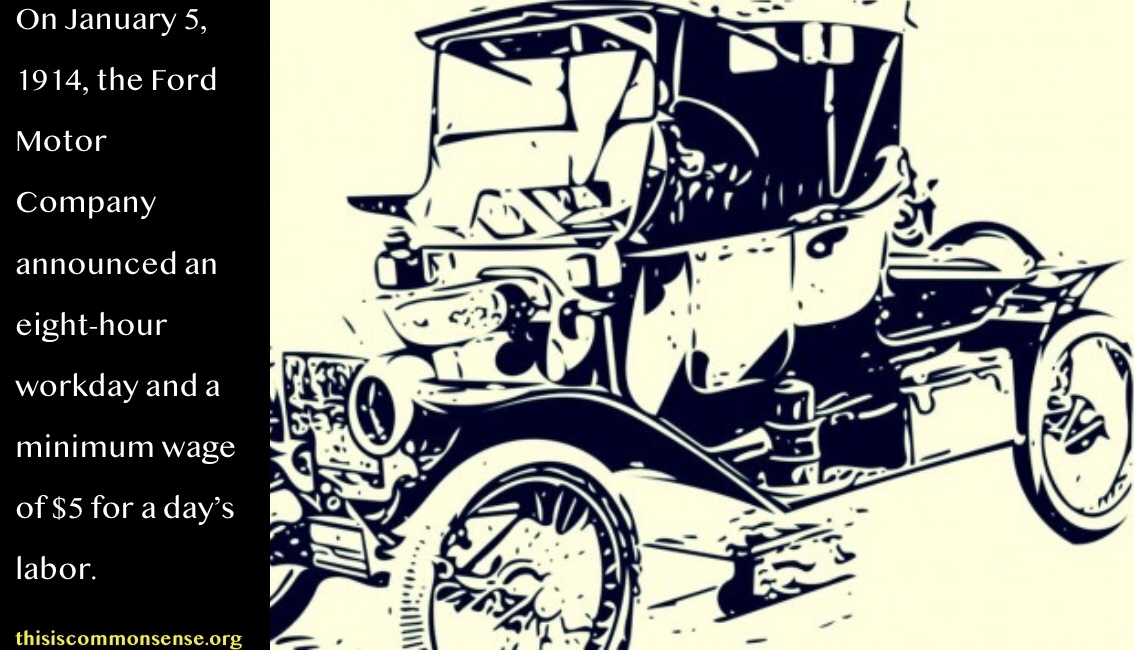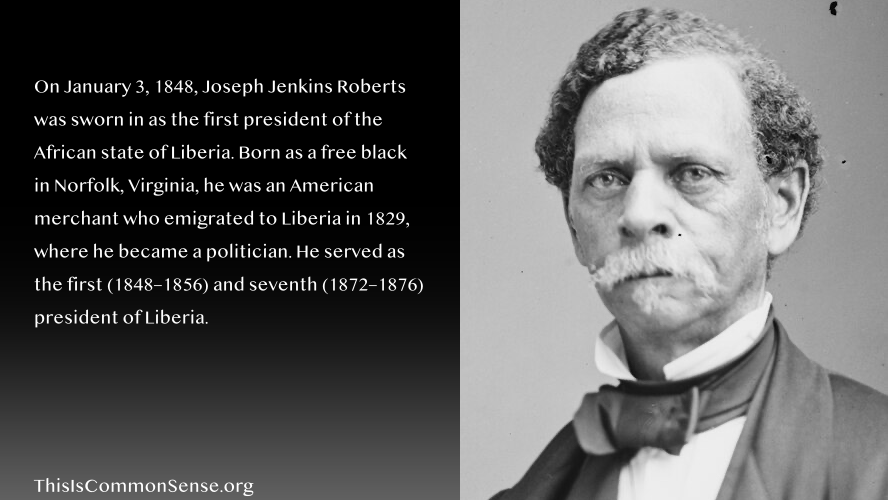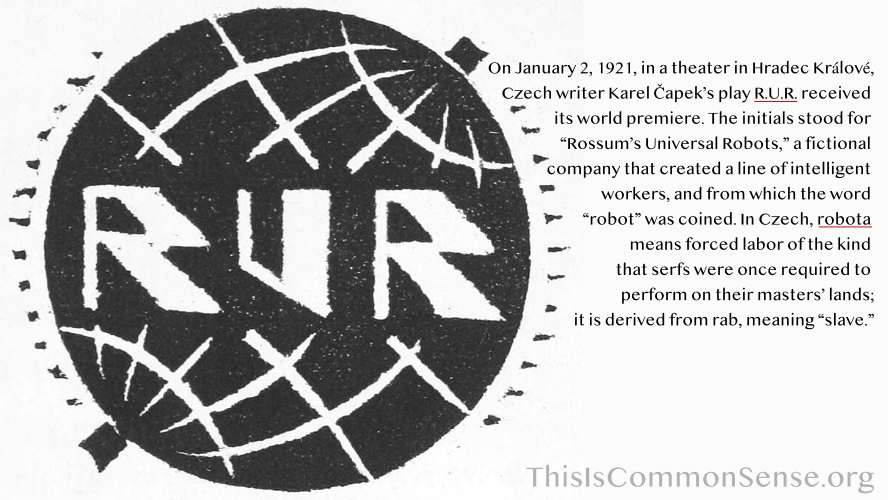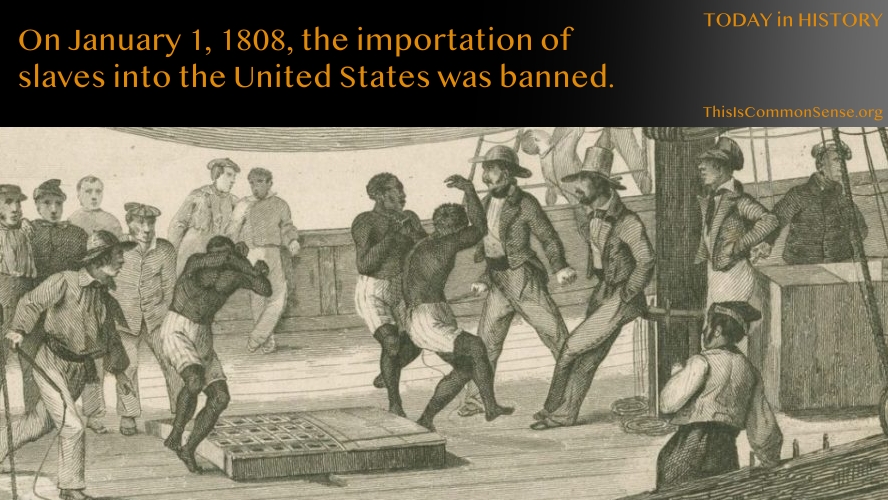On January 5, 1914, the Ford Motor Company announced an eight-hour workday and a minimum wage of $5 for a day’s labor.
Ford’s Five


On January 5, 1914, the Ford Motor Company announced an eight-hour workday and a minimum wage of $5 for a day’s labor.

On Jan. 4, 1642, King Charles I of England sent soldiers to arrest members of Parliament, beginning England’s slide into civil war.
On Jan. 4, 1649, the English “Rump Parliament,” having purged those members willing to restore Charles I to the throne, voted to put Charles I on trial for high treason. Before the month was over, the king had been executed.

On January 3, 1848, Joseph Jenkins Roberts was sworn in as the first president of the African state of Liberia. Born as a free black in Norfolk, Virginia, he was an American merchant who emigrated to Liberia in 1829, where he became a politician. He served as the first (1848 – 1856) and seventh (1872 – 1876) president of Liberia.

On January 2, 1921, in a theater in Hradec Králové, Czech writer Karel Čapek’s play R.U.R. received its world premiere. The initials stood for “Rossum’s Universal Robots,” a fictional company that created a line of intelligent workers, and from which the word “robot” was coined. In Czech, robota means forced labour of the kind that serfs were once required to perform on their masters’ lands; it is derived from rab, meaning “slave.”

On January 1, 1808, the importation of slaves into the United States was banned.
This was not a ban on the slave trade as such, of course, sadly.

On December 31, 1695, Englanders received a new tax, a window tax. One of the main responses to this was the bricking up of many British windows.
This last day of the year in 1991 marked the complete cessation of all institutions of the Soviet Union.
New Year’s Eve 1992 saw the peaceful dissolution of Czechoslovakia into the Czech Republic and Slovakia. This has been dubbed the “Velvet Divorce.”